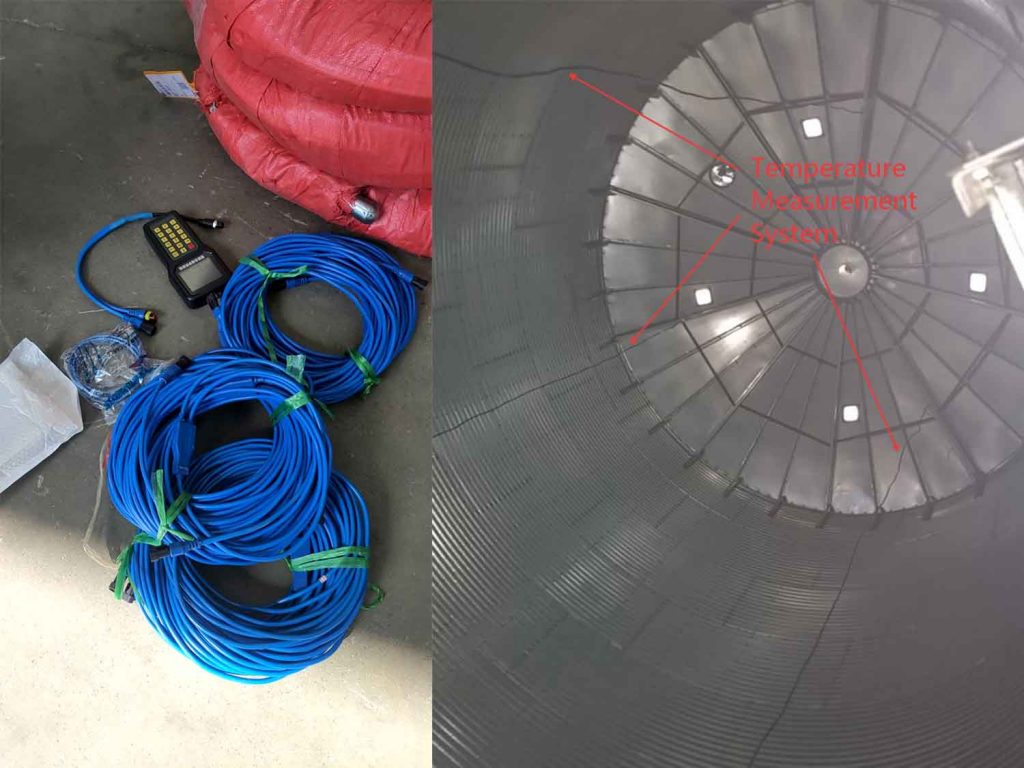The temperature measurement system in grain silos plays a vital role in grain storage. Understanding its advantages enables better grain storage management.

Precise Monitoring and Real - Time Alert
High - Precision Measurement
High - precision measurement provides reliable data support for silo managers. It helps them promptly grasp grain pile temperature conditions to ensure grain quality.
Real - Time Data Update and Alert
The system refreshes temperature data every few seconds. It immediately triggers an alarm when temperatures exceed preset safety ranges. For silos, this function is crucial. When grain pile temperatures abnormally rise, potentially causing spontaneous combustion or pest outbreaks, the system notifies managers in the first place. This allows them to take swift action to prevent losses.
Loss Prevention and Safety Assurance
Reducing Grain Loss
Through precise temperature monitoring and timely alerts, managers can effectively prevent grain pile spontaneous combustion and pest outbreaks. For instance, pests like grain beetles and rice weevils reproduce fastest at 22 - 35℃. The temperature system can issue an alert when pest - induced temperature rises by 2℃. This enables early fumigation treatment, reducing pesticide use by over 30% and significantly lowering grain loss.
Ensuring Storage Safety
The temperature system also ensures storage safety. By continuously monitoring grain pile temperatures, it can detect abnormalities before temperatures exceed 55℃. This allows for timely cooling measures to effectively prevent spontaneous combustion accidents.
Intelligent Management and Efficient Decision - Making
Data - Driven Decision - Making Support
The system records temperature data over the long term, providing managers with abundant historical data and analytical reports. By analyzing these data, for example, optimizing ventilation and cooling operations based on seasonal temperature changes, storage efficiency can be improved.
Intelligent Integration and Remote Monitoring
The system can be integrated with silo ventilation and fumigation equipment to achieve automated temperature control. Managers can also remotely monitor silo temperatures anytime, anywhere via mobile phones or computers. This intelligent management approach not only improves work efficiency but also reduces the cost and risk of manual inspections.
Improving Grain Quality
Stabilizing Grain Quality
With precise temperature control from the temperature system, silo managers can maintain grain pile temperatures within an ideal range. This reduces grain quality degradation caused by temperature fluctuations. High - quality grain not only gains greater market recognition but also extends storage time, enhancing economic benefits.